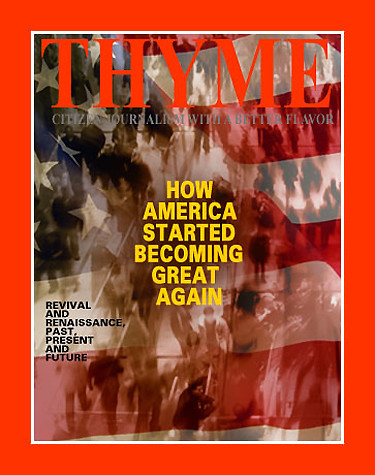
Volume XII, Issue X
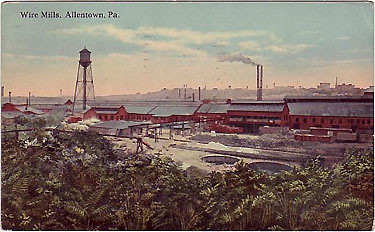
Post card of a wire mill in Allentown Pennsylvania.
Revival and Renaissance in America
The 'other' weekly news magazine once featured the cover: "How America Learned to Sell Cars Again." We at THYME are a bit reluctant to see car sales as a barometer of a society's greatness. Economic indicators are important in measuring a society's health, to be sure, but they are not the truest measure. Politicians are quick to offer their prescription for a return to a robust economy. But many around us are looking for deeper answers to deeper problems. Of times like this it might well be said: "Therefore said he unto them, The harvest truly is great, but the labourers are few: pray ye therefore the Lord of the harvest, that he would send forth labourers into his harvest." -- Luke 10:2. Now more than ever, those who would stir men's hearts to higher, nobler aspirations are needed... men and women who understand where a society's true greatness really lies.
Concerned about the materialistic, acquisitive, corrupt world of an affluent society, they sought to confront her sins and establish her again as a light to the world. The year was 1769 and under the preaching of George Whitefield the English beginnings of the Great Awakening had their start. Soon it would change the fabric of American life as well. Following John and Charles Wesley to America, Whitfield joined his old Oxford classmates in changing the fabric of America.
Men like Jonathan Edwards took the message of redemption and made it personal. His sermon: "Sinners in the Hand of an Angry God" moved many to see the Gospel message in a personal way, not simply as academic material. The personalization of faith led men and women to change their ways and live in light of a redemptive message. Scholars may debate the amount of influence this movement had in the creation of the United States of America, but the fact that it had an influence is clear!
The late Eighteenth Century saw waves of revival. Camp meetings organized by preachers like James McGready brought the far scattered settlers together to confirm their commitment to personal and life-changing faith. Itinerant preachers spread the movement through the South among both those of both European and African ancestry. A massive interdenominational meeting at Cane Ridge, Kentucky, in 1801, marked the high point of the movement.
but by 1830 the movement had waned.
America's failings are well documented. Dark times such as the Cherokee Removal and a host of local rebellions show us that America was often prey to the baser nature of man. Modern historians tend to forget the perilous course of America's journey.
Our nation might have ended early in its founding when Continental Army soldiers, who had not been paid, were set to march on Philadelphia. They might have killed the representatives but for the intervention of their beloved leader, George Washington, who rode out to meet them.
The shots fired on Fort Sumpter might have been the end of our United States as well. Indeed the 1860's saw a divided landscape and untold carnage at places like Antietem. Great cities such as Richmond and Atlanta were destroyed, their citizens displaced, their economies ruined.
Men like Dwight L. Moody spoke into the darkness. Moody's revivals are legend.
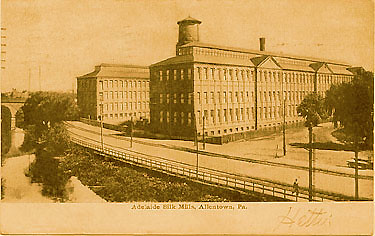
Mill building in Allentown as shown on an old post card.
Modern times saw two great wars in Europe that threatened to engulf all of human civilization. Untold horrors were seen by the liberators of the death camps. Men like Billy Graham and his son Frankin rose to speak into our times. Local Pastor Chuck Balsamo just published his book: Make Me a Legend [click to read]. Troubled times are nothing new. Pastor Balsamo seeks to inspire today's generation to step up and pray and participate in the dream of a better tomorrow. Indeed, a historical thread exists that suggests that the great American nation was built largely by a lot of people who, in the words of Hebrews 11 [1.], were "seeking a better Kingdom."

A factory in today's Allentown as American industry awaits renewal.
The America I Love
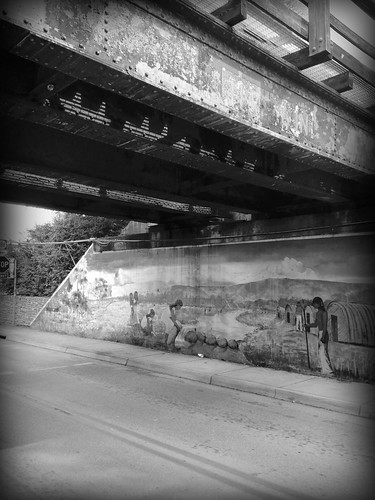
Historical Mural, Crozet, Virginia: The Monacans were the first inhabitants of the region...
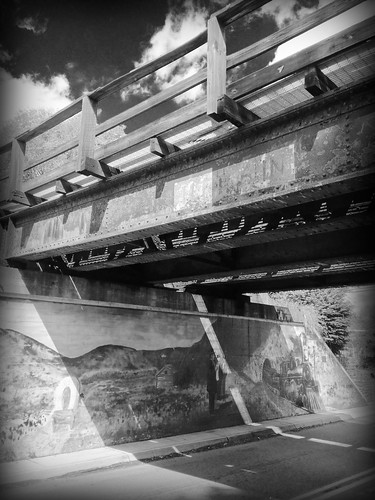
...followed by the settlers of the Big Survey. The railroad, engineered by Claudius Crozet, for whom the town is named, linked the region to the West.
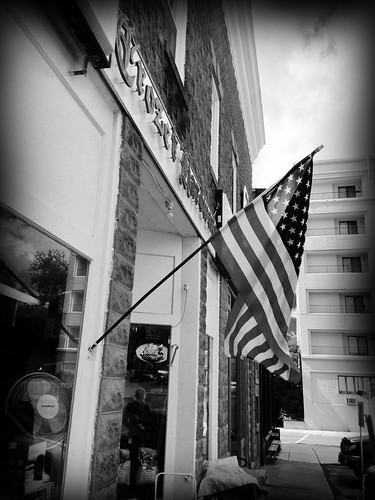
Today Crozet is a growing community in Central Virginia. Venerable institutions such as Crozet Hardware continue to serve the people of an ever changing town.
